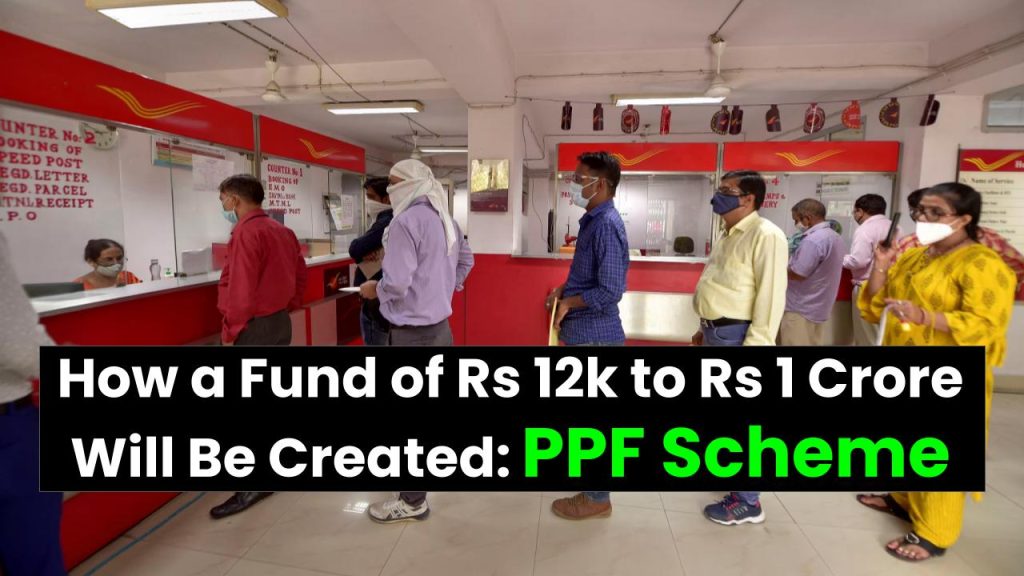
The Public Provident Fund (PPF) is one of the most trusted and effective long-term investment options in India. Whether you’re a salaried professional, a small business owner, or a parent planning your child’s future, PPF can help you build a fund from as little as Rs 12,000 annually to even Rs 1 crore. Yes, you read that right!
In this article, we’ll explain exactly how this miracle of compounding works. From the basics of the PPF scheme to real-life examples of how your money can grow over time, this guide will help you understand and plan your investments smartly.
PPF Scheme Will Do Wonders
| Feature | Details |
|---|---|
| Scheme Name | Public Provident Fund (PPF) |
| Minimum Investment | Rs 500 per year |
| Maximum Investment | Rs 1.5 lakh per year |
| Interest Rate (Q4 FY 2024-25) | 7.1% (compounded annually) |
| Maturity Period | 15 years (can be extended in 5-year blocks) |
| Tax Benefits | EEE (Exempt-Exempt-Exempt) under Section 80C |
| Official Website | India Post PPF |
The Public Provident Fund (PPF) is a proven way to build long-term wealth. With disciplined contributions and smart planning, even a modest investment of Rs 12,000 per year can snowball into lakhs over time. For those who can commit the maximum of Rs 1.5 lakh annually and stay invested for 25 years or more, a fund of Rs 1 crore is absolutely achievable.
What is the Public Provident Fund (PPF)?
The PPF scheme is a government-backed small savings scheme introduced in 1968. It aims to encourage savings while offering attractive interest and tax benefits. The biggest advantages of PPF are the risk-free nature, tax-free returns, and guaranteed interest paid by the government of India.
Investors can open a PPF account through a post office or authorized banks such as SBI, ICICI, or HDFC.
Key Features:
- Lock-in period of 15 years
- Interest is revised quarterly and compounded annually
- Loan and partial withdrawal facility from the 3rd and 7th year respectively
see also: What Happens to a Loan If the Borrower Dies?
How to Grow Rs 12,000 to Rs 1 Crore with PPF
The magic lies in the power of compound interest and regular long-term investing. Let’s look at how your investments can grow under different scenarios.
Scenario 1: Investing Rs 1,000 per month (Rs 12,000 per year)
- Tenure: 25 years
- Total Investment: Rs 3 lakh
- Interest Earned: Approx. Rs 3.88 lakh
- Maturity Value: ~Rs 6.88 lakh
Scenario 2: Investing Rs 5,000 per month (Rs 60,000 per year)
- Tenure: 25 years
- Total Investment: Rs 15 lakh
- Interest Earned: Approx. Rs 19.42 lakh
- Maturity Value: ~Rs 34.42 lakh
Scenario 3: Investing Rs 12,500 per month (Rs 1.5 lakh per year)
- Tenure: 25 years
- Total Investment: Rs 37.5 lakh
- Interest Earned: Approx. Rs 65.58 lakh
- Maturity Value: Rs 1.03 crore
Note: Calculations are based on a 7.1% annual interest rate, compounded yearly.
Step-by-Step Guide to Using PPF for Wealth Creation
Step 1: Open a PPF Account
You can open an account at your nearest post office or authorized bank branch. You’ll need:
- Aadhaar Card
- PAN Card
- Passport-size photo
- Initial deposit of Rs 500
Step 2: Make Regular Contributions
- Decide how much you can contribute monthly or annually
- Ensure the amount does not exceed Rs 1.5 lakh per year
- Prefer investing at the start of the financial year (April) to maximize compounding
Step 3: Stay Invested for the Long Term
- The minimum tenure is 15 years
- After maturity, you can extend in 5-year blocks with or without additional contributions
Step 4: Monitor and Plan Your Extensions
- If your goal is Rs 1 crore, you will likely need 25-30 years of consistent investment
- Use official PPF calculators to track your projected returns
Benefits of PPF
1. Tax-Free Returns
Under the EEE regime, the investment, interest earned, and maturity proceeds are all tax-free under Section 80C.
2. Government Guarantee
Your investment is 100% secure and backed by the Government of India, making it a risk-free savings option.
3. Flexible Investment
You can invest any amount between Rs 500 and Rs 1.5 lakh per year. You may also invest in lump sum or in monthly installments.
4. Loan Facility
You can take a loan against your PPF balance from the 3rd to 6th year at lower interest rates.
5. Partial Withdrawals
From the 7th financial year onwards, partial withdrawals are allowed to meet urgent financial needs.
How to Extend Your PPF Beyond 15 Years
Once your PPF matures after 15 years, you have 2 options:
Option 1: Extend with Contribution
- Submit Form H within 1 year of maturity
- Continue investing and earning tax-free interest
Option 2: Extend without Contribution
- Don’t invest further but let the existing balance earn interest
- Can be withdrawn partially every year
Pro Tip: Extending with contributions helps boost your final corpus significantly if you’re chasing the Rs 1 crore goal.
Practical Advice for Professionals and Parents
- Start early: Begin investing in your 20s or early 30s for best results
- Use PPF for children’s future: Open an account in their name and invest for their education/marriage
- Retirement Planning: Use PPF as a safe base along with EPF or NPS for stable retirement income
see also: What Will Happen If You Do Not Repay the Personal Loan? Bank Recovery Methods
FAQs About Building Rs 1 Crore with PPF
Q1. Can I invest more than Rs 1.5 lakh per year?
No. The maximum contribution limit is Rs 1.5 lakh per year across all PPF accounts held in your name.
Q2. Is the interest earned on PPF fixed?
No. It is set quarterly by the Ministry of Finance. Currently, it is 7.1% (Q4 FY 2024-25).
Q3. Can I withdraw money before 15 years?
Only partial withdrawals are allowed from the 7th year. Full withdrawal is allowed only after 15 years.
Q4. What happens if I miss a payment?
You can reactivate your account by paying a penalty of Rs 50 per year plus the minimum contribution.
Q5. Can NRIs invest in PPF?
No. NRIs are not allowed to open new PPF accounts or extend existing ones beyond maturity.











